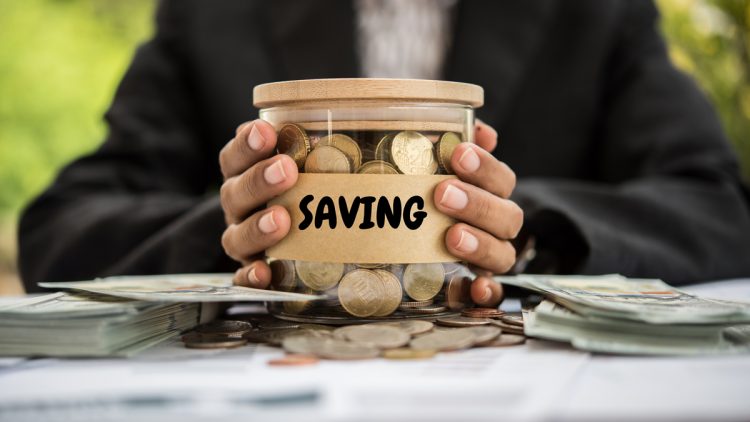How To Save For Retirement Without A 401k
How can you save money for retirement without having a 401k plan? Let’s look at a few options!
Saving For Retirement Without A 401k Tips
There are plenty of alternative ways to save money for individuals without a 401k. Most freelancers and self-employed workers have no 401k offering, yet there are five easy tips to follow for saving towards retirement.
Tip 1. Save Tax Refunds
The easiest way to begin saving money is by putting away your entire tax return as soon as you receive it. Make a habit of doing this every single year, if you can afford to do so. There are a few different ways to save or invest this return each tax season. IRS form 8888, for example, will allow taxpayers to deposit the refund directly into two of more savings/investment accounts.
Tip 2. Open An IRA
One of the more popular options for employees without a 401k plan is opting to open an IRA. A Roth IRA or a traditional IRA will prove beneficial in the long run. Another important piece of information about these plans is they are not an exclusive offering. Any individual currently earning an income is free to open an IRA. This includes both unmarried individuals and individuals who are married to a spouse earning an income. Most freelancers or self-employed workers choose to open an IRA.
Tip 3. Contribute To A CD
Another options for individuals without a 401k is opening a certificate of deposit (CD). The biggest benefit of opening a CD is that you are free to withdraw your money on demand, in most cases. This is great in the event you run into some sort of pressing financial situation or medical emergency. CDs are also insured by the federal government to never lose value.
Tip 4. Self-Employed 401k Plan
Also known as a solo 401k, a self-employed 401k plan allows you to contribute twice. This is possible because you are allowed to contribute both as an employer and employee. As long as your total earnings does not surpass $19,500, you can contribute up to 100% of your yearly income. When contributing as the employer, though, you can only contribute up to 25% of your yearly income. Spouses of participants of this plan are also eligible to open a self-employed 401k.
Tip 5. Health Savings Account
Whether or not you have chosen to open an IRA or contribute to a CD, you should consider the idea of opening an additional health savings account. A health savings account (HSA) has many benefits, including tax-free withdrawals and growth potential. After the age of 65, you are eligible to take money out of this account with no penalties.
When Should I Start Saving For Retirement?
The financial experts say that everyone should begin saving as soon as they can, of course. While this seems to be a case of easier said than done, there are many available savings options for young people. A great rule of thumb is to put away 10% of your monthly income each and every month. For example, putting away 10% of your $5,000 monthly income will lead to $500 in savings. $500 saved each month for a year will equate to $6,000 in yearly savings. Not a bad start at all when it comes to saving for retirement!
Starting the savings process in your 20s will help cover you for any stock market dips. Charles Schwab conducted a recent survey which revealed that Americans believe they need to save $1.7 million by age 65. If this is the target figure, it means you will have to save a minimum of $500 per month, beginning at age 25.
Saving this amount of money monthly can be unreasonable in many cases. Many 25-year-olds are just starting out in the job market. Others may be struggling to pay off student loans and/or raising a young family. If you decide to kick your retirement savings days down the road, then the amount you’ll have to save each month will undoubtedly increase.
Average Age When Americans Start Saving For Retirement
According to Morning Consult, these are the average age groups when Americans start saving for retirement:
- Ages 20-29: 39%
- Ages 30-39: 25%
- Ages 40-49: 15%
- Ages 50-59: 6%
About Ventana Winds
Ventana Winds Retirement Community is a member of SLS Communities and offers Assisted Living and Memory Care services In Youngtown, Arizona.
More Articles About Senior Living
- How Much Does Memory Care Cost?
- How To Talk To A Parent With Dementia
- Memory Care Facilities Near Me
- Best Golf Clubs For Seniors
- Questions For Assisted Living Interviews
- How To Look Younger At 50
- Retirement Party Ideas
- Can I Retire At 60 With 500K?
- Retire In Youngtown AZ
- Retirement Wishes – 100 Quotes Continued
- Assisted Living vs Memory Care
- Retirement Wishes For A Boss
- Is It Possible To Retire Early At Age 30, Age 40, or Age 50
- Differences Between Independent Living Vs Assisted Living
- Senior Living Youngtown
- How Much Does Assisted Living Cost In Youngtown, Arizona?
- Best Places To Retire In Youngtown Arizona
- Assisted Living Peoria
- What Is Memory Care? The Difference Between Alzheimer’s and Dementia.
- What is Assisted Living?
- What is Arthritis?
- Benefits of Assisted Living
- What is Memory Care?
- Senior Retirement Living Options
- Checklist For Assisted Living
- Best Place To Retire In Sun City Arizona
- Can The IRS Seize My Retirement Money?



